The Cars
汽车合唱团自1976年在波士顿成军到1988年解散一共只有六张录音室专辑,但这六张作品却使他们成为七○年代晚期到八○年代中期最成功、最受欢迎的美国流行摇滚、新浪潮乐团之一。汽车合唱团包括五位团员: Ric Ocasek、Elliot Easton、键盘手Greg Hawkes、Benjamin Orr以及鼓手David Robinson。最早是团长、节奏吉他手兼主唱Ric Ocasek与贝斯手兼主唱Benjamin Orr,认识后开始在波士顿当地表演,接着擅长键盘、萨克斯风并对电子合成器有研究的Greg Hawkes加入,这三个人开始灌录些试听带,然后主吉他手Elliot Easton从别的团体跑来,最后是原Modern Lovers(Jonathan Richman组的团)里的David Robinson从洛杉矶回到家乡波士顿后喜欢Ric组团音乐方向,于是加入而且提供了一个响亮、好记又代表音乐风格的团名--The Cars。1977 年汽车合唱团开始演唱,当时Elektra/Asylum唱片公司制作人Roy Thomas Baker听到后极为欣赏,于是不仅签约同时担任他们前四张专辑的制作人。1978年汽车合唱团发行第一张同名专辑,从封面上香车美人的结合到音乐新颖不流俗套却又不失流行使得他们销售成绩、评价在欧美反应奇佳。"My Best Friend's Girl"、"Just When I Needed"、"Good Times Roll"都出自此专辑。1979年第二张延续前作风格的专辑「Candy-O」问市自然维持优异的销售记录。进入八○年代两张新浪潮风格专辑「Panorama」、「Shake It Up」相继发行,后者标题曲成为他们首支美国排行前五名单曲。1984年制作人更换为重摇滚界名人Robert John "Mutt" Lange后发行的「Heartbeat City」更造就"Hello Again"、"Magic"、"You Might Think"、"Why Can't I Have You"、"Drive"五首畅销曲,尤其是"Drive"全新由电子合成器架构的抒情曲风连台湾都非常走红。可惜的是在1987年发行「Door To Door」之后不久,Ric Ocasek宣布汽车合唱团解散,团员各自追求个人事业。2002年最新发行的精选辑「The Definitive」除了"Tonight She Comes"是1985年汽车合唱团在唱片时代所发行的精选「Greatest Hits」里当年的新歌外,其余十九首都选自上述六张专辑,而且包含了汽车合唱团所有畅销曲。在2000年Benjamin Orr因胰脏癌去世后汽车合唱团正式走入历史复合无望,唯有从这张精选辑中感受新浪潮与流行、摇滚的平衡所带来一首首新鲜活跃的节拍。Blondie may have had a string of number one hits and Talking Heads may have won the hearts of the critics, but the Cars were the most successful American new wave band to emerge in the late '70s. With their sleek, mechanical pop/rock, the band racked up a string of platinum albums and Top 40 singles that made them one of the most popular American rock & roll bands of the late '70s and early '80s. While they were more commercially oriented than their New York peers, the Cars were nevertheless inspired by proto-punk, garage rock, and bubblegum pop. The difference was in packaging. Where their peers were as equally inspired by art as music, the Cars were strictly a rock & roll band, and while their music occasionally sounded clipped and distant, they had enough attitude to cross over to album rock radio, which is where they made their name. Nevertheless, the Cars remained a new wave band, picking up cues from the Velvet Underground, David Bowie, and Roxy Music. Ric Ocasek and Ben Orr's vocals uncannily recalled Lou Reed's deadpan delivery, while the band's insistent, rhythmic pulse was reminiscent of Berlin-era Iggy Pop. Furthermore, the group followed Roxy Music's lead and had artist Alberto Vargas design sexy illustrations of pinups for their record sleeves. These airbrushed drawings were the group's primary visual attraction until 1984, when the group made a series of striking videos to accompany the singles from Heartbeat City. The videos for "You Might Think," "Magic," and "Drive" became MTV staples, sending the Cars to near-superstar status. Instead of following through with their success, the Cars slowly faded away, quietly breaking up after releasing one final album in 1987. Ric Ocasek (guitar, vocals) and Ben Orr (bass, vocals) had been collaborators for several years before forming the Cars in 1976. Ocasek began playing guitar and writing songs when he was ten. After briefly attending Antioch College and Bowling Green State University, he dropped out of school and moved to Cleveland where he met Orr, who had led the house band on the TV show Upbeat as a teenager. The two began writing songs and led bands in Cleveland, New York City, Woodstock, and Ann Arbor before settling in Cambridge, MA, in the early '70s. In 1972, the pair were the core of a folk trio named Milkwood. The band released an album on Paramount Records in late 1972, which was ignored; the record featured keyboards by a session musician named Greg Hawkes. By 1974, Ocasek and Orr had formed Cap'n Swing, which featured Elliot Easton on lead guitar. Cap'n Swing became a popular concert attraction in Boston, but the group broke up in 1975. Ocasek, Orr, and Easton formed a new band called the Cars in 1976 with former Modern Lovers drummer Dave Robinson and keyboardist Hawkes. Early in 1977, the Cars sent a demo tape of "Just What I Needed" to the influential Boston radio station WBCN and it quickly became the station's most-requested song. For the remainder of 1977, the group played Boston clubs, and by the end of the year, they signed with Elektra Records. The group's eponymous debut album appeared in the summer of 1978 and it slowly built a following thanks to the hit singles "Just What I Needed" (number 27), "My Best Friend's Girl" (number 35), and "Good Times Roll" (number 41). The Cars stayed on the charts for over two and a half years, delaying the release of the group's second album, Candy-O. It would eventually sell over six million copies. Recorded early in 1979, Candy-O wasn't released until later that summer. The album was an instant hit, quickly climbing to number three on the charts and going platinum two months after its release. The record launched the Top Ten hit "Let's Go" and sent the band to the arena rock circuit. Perhaps as a reaction to their quick success, the group explored more ambitious territory on 1980's Panorama. Though the album wasn't as big a hit as its predecessors, it nevertheless peaked at number five and went platinum. Before recording their fourth album, several bandmembers pursued extracurricular interests, with Ocasek earning a reputation as a successful new wave producer for his work with Suicide and Romeo Void (he even produced some demos for Iggy Pop). The Cars released their fourth album, Shake It Up, in the fall of 1981, and it quickly went platinum, with its title track becoming the group's first Top Ten single. Following the success of Shake It Up, the Cars recorded the soundtrack to the short film Chapter-X and then took an extended leave, with Ocasek, Orr, and Hawkes all recording solo albums in 1982; Ocasek also produced the debut album from the hardcore punk band Bad Brains. The Cars reconvened in 1983 to record their fifth album, Heartbeat City, which was released in early 1984. Supported by a groundbreaking, computer-animated video, the album's first single, "You Might Think," became a Top Ten hit, sending Heartbeat City to number three on the album charts. Three other Top 40 singles — "Magic" (number 12), "Drive" (number three), and "Hello Again" (number 20) — followed later that year, and the record went triple platinum in the summer of 1985. At the end of the year, the group released Greatest Hits, which featured two new hit singles, "Tonight She Comes" and "I'm Not the One." The Cars were on hiatus for much of 1985 and 1986, during which time Ocasek, Easton, and Orr all recorded solo albums. During 1987, the group completed its seventh album, Door to Door. The album was a moderate hit upon its summer release in 1987, launching the single "You Are the Girl," which peaked at number 17. Door to Door had seemed half-hearted, sparking speculation that the group was on the verge of splitting up. The Cars announced in February of 1988 that they had indeed broken up. All of the members pursued solo careers, but only Ocasek released albums with regularity, and became a much sought-after alt-rock producer by the '90s (having worked with the likes of Weezer, Bad Religion, Black 47, Hole, Guided by Voices, No Doubt, Nada Surf, Johnny Bravo, D Generation, Possum Dixon, Jonathan Richman, the Wannadies, and solo releases by former Suicide members Alan Vega and Martin Rev, among others). Easton later reappeared with Creedence Clearwater Revisited, while sadly, Orr lost a battle with pancreatic cancer on October 3, 2000. After Orr's death, a few new Cars releases appeared on the marketplace, including the concert DVD Live (taped originally in Germany during 1979, it included an interview with the group shortly before Orr's passing), plus a double-disc deluxe edition of their classic self-titled debut album, and a more extensive hits collection, Complete Greatest Hits. By early 2002, Ocasek was at work putting together a Cars documentary film, comprised of backstage footage and unreleased promo clips that the band filmed itself.

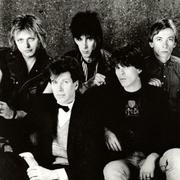
 Drive - The Cars
Drive - The Cars
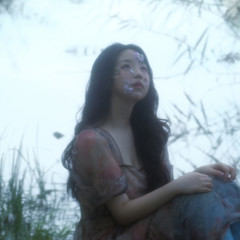
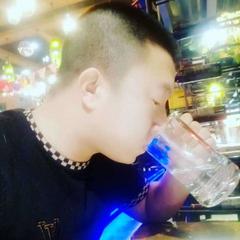




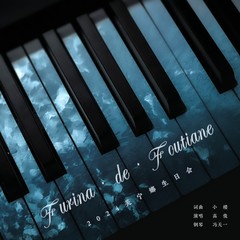

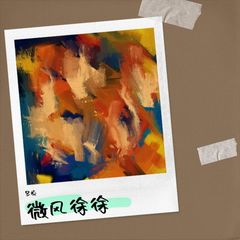
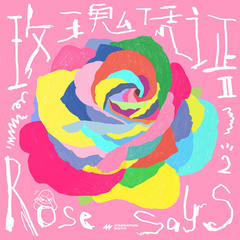
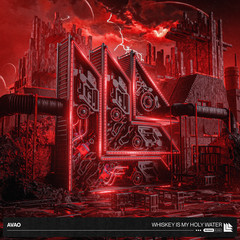

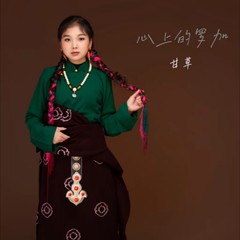

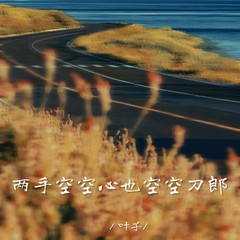













![[STATION] aespa《Dreams Come True》MV Teaser - aespa (에스파)](https://img2.kuwo.cn/wmvpic/324/79/54/2120387380.jpg?imageView2/1/w/195/h/130/format/jpg/q/60)





